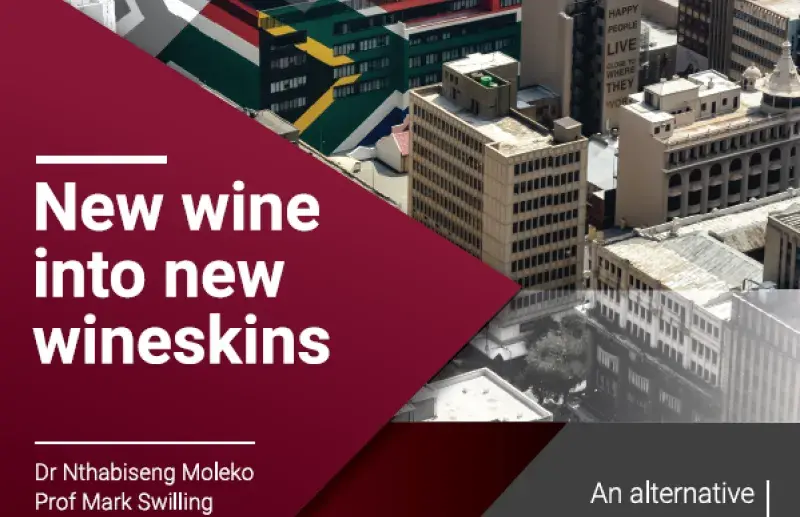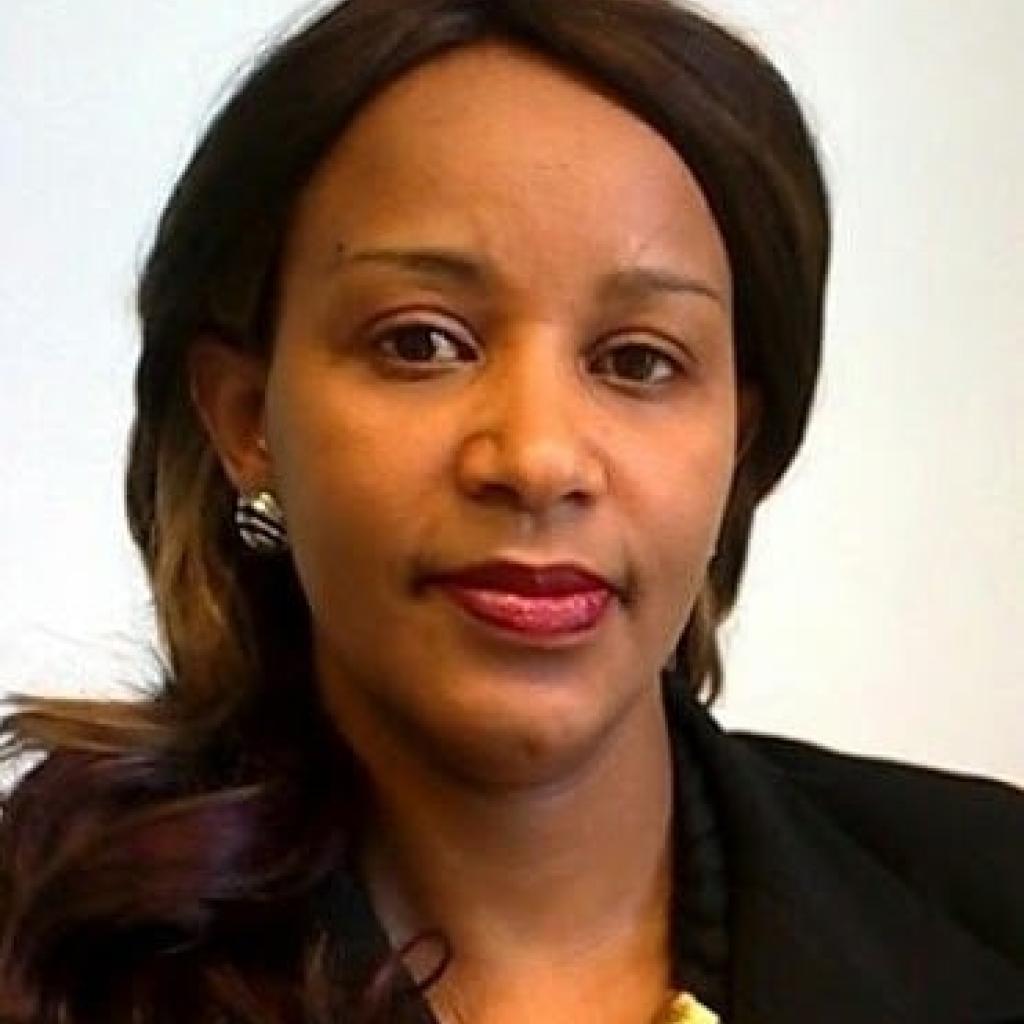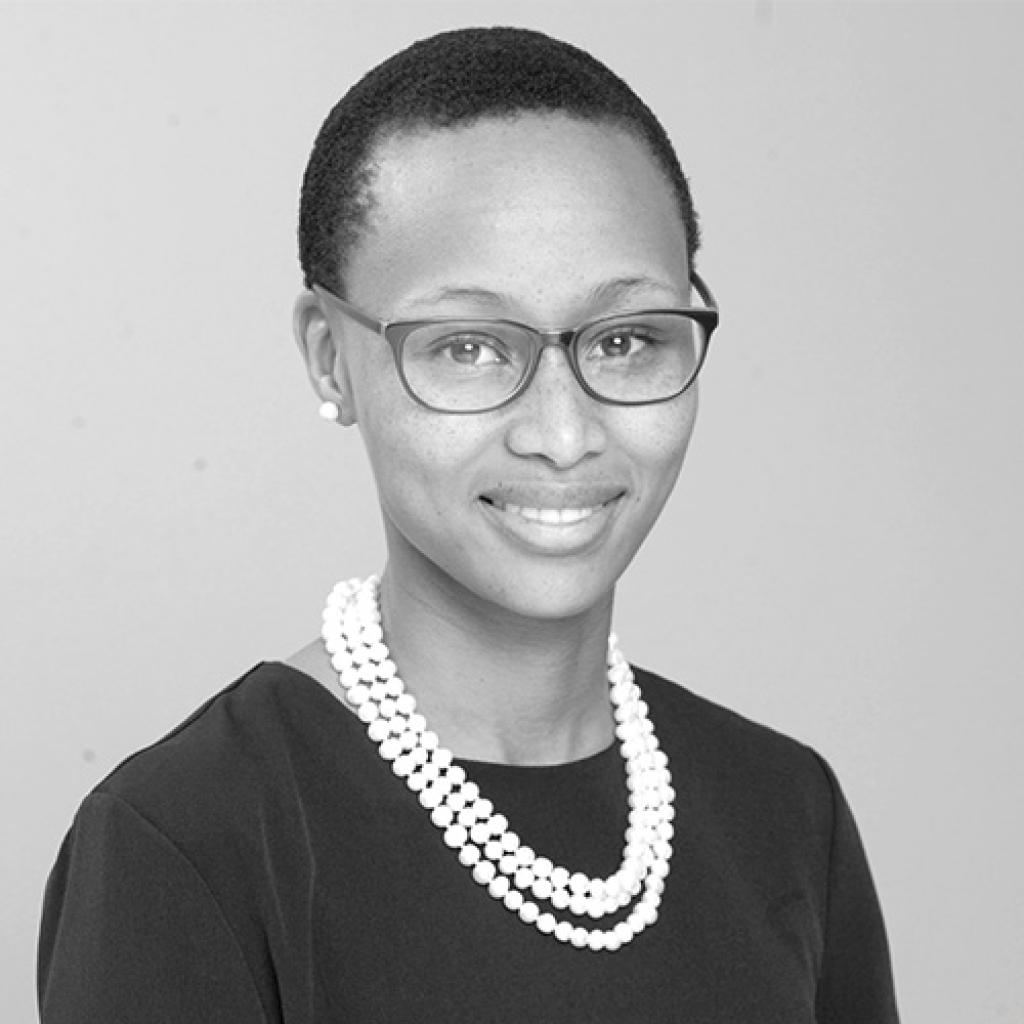Acquire critical skills to help unlock Africa’s growth potential
This internationally accredited PGDip will equip you with the know-how to help design and implement financing interventions for large-scale infrastructure projects such as roads, energy plants, dams, schools, houses, hospitals and telecommunication. These are crucial skills needed to help unlock Africa’s future.
You will learn how to design and implement African-driven solutions, and how to shape the policies and programmes to make this happen. You will also be exposed to skills that are critical for Africa’s future – such as responsible leadership, the management of risk and uncertainty, and the management of projects.
Although the content of this programme is focused on Africa, the know-how acquired can be applied in any developing country. Over the past five years, students from over 18 countries attended the programme.
The programme is aimed at entry-level to mid-level managers who typically work in the financial services industry, public institutions, banks, companies or corporates, and development finance institutions. Passed at a certain level, this PGDip can give you access to our MPhil Development Finance, MBA (generalist and Project Portfolio Management stream), and MPhil Leadership Coaching.
Postgraduate Diploma
Postgraduate Diploma Development Finance
Blended
Dates for 2024: (blended)*
- 15 January (Orientation) Remote
- Classes commence 16 January @ 16:00 until 4 December
- Classes can run multiple evenings in one week
Foundation modules – Tuesday (Blended 1), Wednesdays (Blended 2), Thursdays (Blended 3).
Specialisation modules – Wednesdays
Fees: R109 648 (2024)
Duration: 1 or 2 years
*The Business School reserves the right to change programme dates and fees.
Key takeouts of this PGDip
- Acquire critical skills to help unlock Africa’s growth potential
- Help to shape development projects and policies
- Help to design and implement financing interventions for infrastructure projects such as roads, energy plants, dams, schools, houses, hospitals and telecommunication
- Develop your leadership skills – this PGDip includes a module on responsible leadership
- Invest in your career path – ideal for entry-level to mid-level managers
Learn while you earn
If you are doing the 1-year PGDip, you need to attend 2 blocks of classes for 5 consecutive days plus 30 once-a-week late-afternoon classes.
If you are doing the 2-year PGDip, you need to attend 2 blocks of classes for 5 consecutive days plus 10 once-a-week late-afternoon classes in Year 1, and 20 once-a-week late-afternoon classes in Year 2.
Course Structure and Content
The modules of the PGDip DevFin are split into a foundation phase (covering skills, frameworks and tools you can apply in any field of work) and a specialisation phase (programme-specific modules).
This programme provides skills to managers in the development finance environment to enable them implement and manage the design and financing of interventions that will help to grow South Africa as well as the greater Africa. The programme therefore equips entry-level to mid-level managers with the know-how to:
- Provide financial and operational input in terms of development finance issues
- Identify development projects or policies
- Contribute to the design and implementation of structured policies and interventions to finance development needs, especially in Africa.
The value of this programme also lies in the integration of theory and practice, and in global business knowledge with African contextualisation.
The modules of the PGDip DevFin are split into a foundation phase (covering skills, frameworks and tools you can apply in any field of work) and a specialisation phase (programme-specific modules). Students are provided with comprehensive support throughout the programme.
The programme is aimed at entry-level to mid-level managers who typically work in the financial services industry, public institutions, banks, companies or corporates, and development finance institutions.
The foundation phase modules cover skills, frameworks and tools you can apply in any field of work while the specialisation phase modules focus on development finance skills.
You need to do these 4 foundation phase modules:
- Term 1: Understanding the World
- Term 2: Responsible Leadership
- Term 3: Managing of Projects
- Term 4: Managing Risk and Uncertainty
You also need to do the 4 specialisation phase modules:
- Term 1: Financing for Development
- Term 2: Financial Analysis and Project Appraisal
- Term 3: Financing Public Sector Projects
- Term 4: M&E of Development Projects
If you are doing the 1-year PGDip, this is how your classes are scheduled:
Block 1
- Foundation module 1: 5 consecutive days of classes (full day of orientation followed by half-days for the remainder of the week)
- Specialisation modules: 5 consecutive Wednesdays of late-afternoon classes (follows after first foundation module)
Block 2
- Foundation module 2: 5 consecutive days of classes (half-days of classes)
- Specialisation modules: 5 consecutive Wednesdays of late-afternoon classes (follows after second foundation module)
Blocks 3 and 4
20 once-a-week late-afternoon classes, alternating between foundation modules the one week and specialisation modules the following week:
- Foundation modules: Tuesday, Wednesday or Thursday afternoon (depending on your cohort)
- Specialisation modules: Wednesday afternoons
The blended learning classes are presented synchronously online (foundation modules) and combined online and on-campus (specialisation modules). If too few students choose to participate on campus, there can be a conversion to only online facilitation after deliberations. At Stellenbosch Business School, we highly value face-to-face interaction, whether in person or online. This approach has been instrumental in helping our students build lasting networks and relationships. The late-afternoon classes are presented from 16:00 to 20:15 (short break included).
If you are doing the 2-year PGDip, this is how your classes are scheduled:
- Year 1: Foundation modules (i.e., 2 blocks of classes for 5 consecutive days plus 10 once-a-week late-afternoon classes)
- Year 2: Specialisation modules (i.e., 20 once-a-week late-afternoon classes)
The advantages of the blended learning format
- Flexibility: Study while you work with the flexibility of digital class attendance, which means minimum time away from work.
- Less travel: The blended learning delivery option opens up access to students from elsewhere in South Africa, from other African countries and even further afield. It also lowers the opportunity cost to do this programme with us as it reduces travel and accommodation costs.
Stellenbosch Business School provides additional access to its programmes through its Recognition of Prior Learning (RPL) process, as recommended by the Council on Higher Education (CHE). The purpose of the Council on Higher Education’s policy on Recognition of Prior Learning is to develop and facilitate the implementation of RPL across the higher education sector and to base this on the principles of equity, access, inclusivity and redress of past unfair discrimination with regard to educational opportunities.
In line with the requirements of the Council on Higher Education, the Business School may admit up to 10% of its student body per programme under RPL.
Candidates who wish to be admitted under the RPL policy will firstly have to submit all the documentation as required for all prospective students. In addition, prospective students applying for this PGDip need to adhere to the following:
- Have at least an NQF 4 qualification (i.e., school-leaving certificate, matric) (all school and academic certificates are required)
- Have at least 10 years of working experience after obtaining a school-leaving certificate, of which at least 5 years should have been in a management or related professional position
- Submit a comprehensive CV, indicating detailed areas of responsibility as well as information of activities outside the work environment
- Provide the Business School with the names and contact details of at least two persons who can testify about the candidates’ managerial or related professional abilities (typically current or former line heads). These persons will be required to give a detailed personal reference about the candidate on forms provided by Stellenbosch Business School.
- Write and submit three motivational essays (specific topics are provided)
The RPL selection process entails the following:
- The Business School’s Admissions Committee (programme head and another academic) will conduct an in-depth interview with the candidate.
- If the Committee is of the opinion that the candidate has the ability to cope with the demands of the Postgraduate Diploma, he/she may be admitted.
- A recommendation of admission is sent via Stellenbosch Business School’s Academic Planning Committee to the Board of the Faculty of Economic and Management Sciences for notification.
- RPL candidates need to apply by 31 October each year to allow sufficient time for the assessment process.
- Note that the learning acknowledged in terms of RPL cannot also be used to grant exemption of credits within the same programme.
This internationally accredited PGDip will equip you with the know-how to help design and implement financing interventions for initiatives such as roads, energy plants, dams, schools, houses, hospitals and telecommunication infrastructure. These are crucial skills needed to help unlock Africa’s future.
Programme Fees
Application fee for 2024
Tuition fees for 2024
Important:
- Payment of full programme fees for South African students: Students can pay the full programme fees upon registration, or they can pay 80% of the annual fees by the end of May and the balance of 20% by the end of September.
Payment schedule (calculated on outstanding fee after deposit payment):
28 February - 31 May - 20% x 4 months (80%)
30 June - 20 September - 5% x 4 months (20%) - Payment of full programme fees for international students: International admitted students pay 50% of the annual fee as deposit. The remainder is due one month before commencement of the programme. The South African exchange rate favours international students.
- Deposit: All students pay a deposit on acceptance of admission. South African students must pay a set deposit on admittance. International admitted students pay 50% of the annual fee as deposit. The deposit payable is non-refundable and will be deducted from the total programme fees.
- Application fee: The application fee must accompany the application. The application fee is non-refundable.
- Assessment of international students’ applications: International students require a South African Qualifications Authority (SAQA) evaluation certificate to evaluate their degrees according to South African standards. The Business School’s International Affairs Office will first handle the credential evaluations of international students free of charge. For this to happen, you need to complete the online application, upload all certificates with your application, and pay your application fee. The International Affairs Office will then, as part of the application process, conduct an in-house credential evaluation after you have submitted your application. However, should the International Affairs Office be unsure about the status, recognition or accreditation of your qualification, we reserve the right to refer you to SAQA before we consider your application further.
- Study materials: Study fees include tuition, assessment and e-textbooks.
- Travel and accommodation: Students are responsible for their own travel and accommodation arrangements and costs.
- Programme availability: The Business School reserves the right not to present a programme or programme stream if the enrolment numbers are not sufficient to make the programme sustainable.
- Fee changes: Stellenbosch Business School reserves the right to change the fees at any time.
Please use your Student Number as reference | Email proof of payment to [email protected] | Quote your student number in all correspondence.
Admission Requirements
Academic qualifications
- A Bachelor’s degree in Economics, Finance, Accounting, Commerce or Management, OR
- Any other 3-year Bachelor’s degree with at least 2 years of relevant experience, OR
- Recognition of prior learning
Additional requirements
- Comprehensive CV indicating your work experience.
- Highly recommended: Proficiency in English.
Write an essay
Write an essay of 400 to 500 words on this topic and submitted it in PDF format:
Stellenbosch Business School aspires to be a source of value for a better world. How are your career goals aligned with being a source of value for a better world, and how would this postgraduate programme assist you in achieving your short-term (2 to 3 years) and long-term (10 years) career goals?
How to apply
- About the online application process: The online application form consists of various sections. To progress from the one section to the next, all the information in the current section must be completed and accepted by the information management system. You will be able to complete the form in steps without losing information (i.e. you do not have to complete the application form in one sitting). The application process is the same for South African and international students. It is best to use Google Chrome as web browser when completing your application.
- Determine the NQF levels of your previous qualifications: To find out whether you qualify for this programme, please check the NQF levels of your previous qualifications with the academic institution(s) where you have studied, or contact [email protected].
- Assessment of international students’ applications: International students require a South African Qualifications Authority (SAQA) evaluation certificate to evaluate their degrees according to South African standards. The Business School’s International Affairs Office will first handle the credential evaluations of international students free of charge. For this to happen, you need to complete the online application, upload all certificates with your application, and pay your application fee. The International Affairs Office will then, as part of the application process, conduct an in-house credential evaluation after you have submitted your application. However, should the International Affairs Office be unsure about the status, recognition or accreditation of your qualification, we reserve the right to refer you to SAQA before we consider your application further.
- Checking the status of your application: You can go back to your application and check the status of your application.
- Vetting process: All degrees undergo a formal vetting process to eliminate fraudulent applications.
The application process
Click on the APPLY NOW button and complete the online application form by completing each of the required sections. You also need to upload the following supporting documentation:
- Certified copies of academic records (which must include a transcript of the subjects)
- Detailed CV
- Consent form to verify your qualifications (please download, complete and upload the form in order for Managed Integrity Evaluation (Pty) Ltd to verify your qualification documents)
- Motivational essay (see above)
- Copy of ID (or passport for non-South African students)
- Marriage certificate (where the applicant’s new surname does not match that on the degree certificates)
Payment of your application fee can be done online:
- Bank details: Bank: Standard Bank; Type of account: cheque account; Account name: US Business School; Account number: 073003069; Branch name: Stellenbosch; Branch code: 050610; Beneficiary name: Stellenbosch University; SWIFT code: SBZAZAJJ.
- Enquiries about payments: Please send an e-mail to [email protected].
What happens next?
Your application can only be assessed by the selection panel if it is accompanied by your completed online application form and all the supporting documents, and if you have paid the application fee. The outcome of the selection process will be made known within 30 days or as soon as possible thereafter. If you are uncertain whether your application is complete and is being processed, contact [email protected] for assistance.
Click on the APPLY NOW button and complete the online application form by completing each of the required sections. You also need to upload the following supporting documentation:
- Proof of school-leaving mathematics results
- Certified copies of academic records (which must include a transcript of the subjects)
- Detailed CV
- Consent form to verify your qualifications (please download, complete and upload the form in order for Managed Integrity Evaluation (Pty) Ltd to verify your qualification documents)
- Motivational essay
- Copy of ID (or passport for non-South African students)
- Marriage certificate (where the applicant’s new surname does not match that on the degree certificates)
- Signed declaration form
Payment of your application fee can be done online:
- Bank details: Bank: Standard Bank; Type of account: cheque account; Account name: US Business School; Account number: 073003069; Branch name: Stellenbosch; Branch code: 050610; Beneficiary name: Stellenbosch University; SWIFT code: SBZAZAJJ.
- Enquiries about payments: Please send an e-mail to [email protected].
What happens next?
Your application can only be assessed by the selection panel if it is accompanied by your completed online application form and all the supporting documents, and if you have paid the application fee. The outcome of the selection process will be made known within 30 days or as soon as possible thereafter. If you are uncertain whether your application is complete and is being processed, contact [email protected] for assistance.
Deadlines for PGDip Development Finance applications:
- 15 November for applicants from South Africa
- 15 November for applicants from visa-exempt SADC countries, and the rest of the world
- 31 October for Recognition of Prior Learning applicants.
Also note the following:
- Deadline for RPL applicants: Note that application deadlines for Recognition of Prior Learning (RPL) applicants are earlier than those for other students.
- Study permits for international students: Obtaining a study permit (study visa) from the South African authorities can take up to 12 weeks from the date of being offered a place on a programme at the Business School. An early start with the application process is therefore recommended.
- Multiple-entry visas: Students from non-SADC African countries and other countries with visa requirements who need to apply for study visas can obtain a letter from Stellenbosch Business School confirming the duration of registration at the Business School. This will help students to obtain multiple-entry study visas in case of modular studies.
Study visa requirements for international students
All residential students who are non-South African citizens and are studying at Stellenbosch Business School require a study visa. Prospective students should contact their nearest South African Mission (South African Embassy, Consulate or High Commission), normally in their country of origin, to enquire about the requirements for study visas for South Africa. Applicants are required to present themselves in person so that biometric data may be captured. All international students can contact the Business School’s International Affairs Office at [email protected] for assistance. All international students must hold a valid visa for their intended activity prior to entering South Africa.
Notes on obtaining a study visa
- Obtaining a study visa from the South African authorities takes approximately 12 to 16 weeks from the date of application. However, some missions may process applications sooner. Sufficient time should be allowed for study visa applications to be processed.
- Your study visa application should include a copy of the letter offering a place on the Business School’s study programme. This letter will be provided by our Centre for Academic Administration once the application has been approved. A place on the programme must be confirmed before a study visa application can be considered by the South African Department of Home Affairs. Students should not proceed to Stellenbosch University or its Business School without a valid study visa.
- Although applicants are expected to determine exactly what they require to apply for a study visa, they can be expected to provide the following, among others: a police clearance certificate, proof of medical insurance recognised in South Africa, a radiology report, proof of sufficient funds, and an admission letter from Stellenbosch Business School. Your nearest South African Mission will be able to advise in this regard. The onus falls on the student to make sure that he/she submits a complete application pack.
- All documents should be certified and translated into English before submission (in order not to delay the outcome of the application).
You can still apply based on your management experience. You need to submit all the documentation and assessments as required for all prospective students, plus additional requirements as explained under Recognition of Prior Learning elsewhere on this page.
Write an essay of 400 to 500 words on this topic and submitted it in PDF format:
Stellenbosch Business School aspires to be a source of value for a better world. How are your career goals aligned with being a source of value for a better world, and how would this postgraduate programme assist you in achieving your short-term (2 to 3 years) and long-term (10 years) career goals?
Contact Us
Please contact us if you need more information on this programme or the application process:
Programme enquiries and support with the applications process
Henry Booysen
Telephone: +27 (0) 21 918 4243
Email: [email protected]
Admission and registration enquiries
Marissa Groenewald
Telephone: +27 (0) 21 918 4114
Email: [email protected]
Related Events
Stellenbosch Business School | Virtual Open Week 2023
Kampala, Uganda Information Session
Kigali, Rwanda Information Session
Frequently Asked Questions
Not necessarily. You need a relevant Bachelor’s degree with 2+ years of working experience in order to be considered.
Yes, students can spread the payment of their fees:
- Payment of full programme fees for South African students: Students can pay the full programme fees upon registration, or they can pay 80% of the annual fees by the end of May and the balance of 20% by the end of September.
Payment schedule (calculated on outstanding fee after deposit payment):
28 February - 31 May - 20% x 4 months (80%)
30 June - 20 September - 5% x 4 months (20%)
Payment of full programme fees for international students: International admitted students pay 50% of the annual fee as deposit. The remainder is due one month before commencement of the programme.
Stellenbosch University’s main campus will be in a position to provide you with more information:
http://www0.sun.ac.za/pgstudies/postgraduate-funding-and-support.html
The deadlines for PGDip Development Finance applications are 30 November for applicants from South Africa; 15 November for applicants from visa-exempt SADC countries and from the rest of the world; and 31 October for Recognition of Prior Learning applicants.
Obtaining a study permit (study visa) from the South African authorities takes up to 12 weeks from the date of being offered a place on a programme at Stellenbosch Business School – an early start with the application process is therefore recommended. Recognition of Prior Learning candidates (all programmes) need to apply by 31 October each year. Late applications after the closing dates will only be considered in exceptional circumstances.
Academic assistance is offered via a web-based learning environment, various software and database resources, small-team study groups, informal learning groups and tutorials for certain modules. Support is also provided by the IT Division, Library, Career Leadership Office, Programme Administration, Centre for Academic Administration, International Affairs Office, and Alumni Relations Office.
Related Programmes
Related Articles












